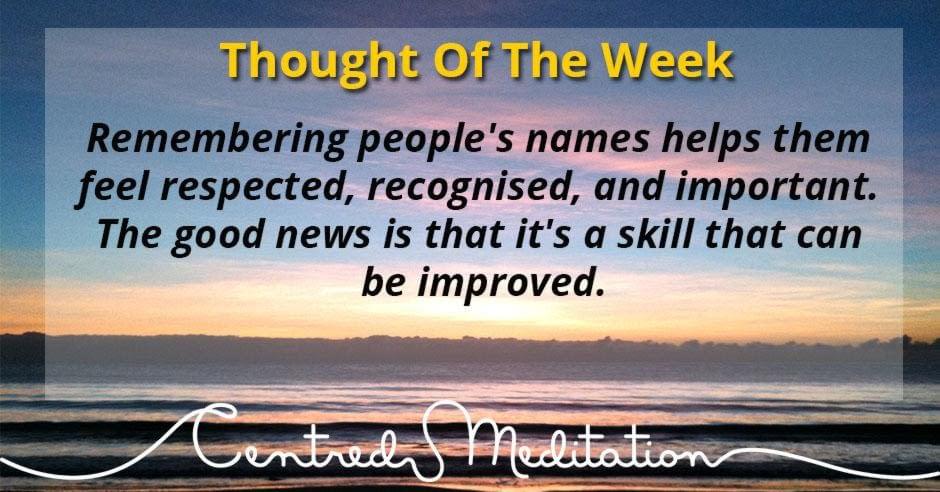Our guests often comment on how good we are at remembering their names, and how touched they feel when we do. It’s not surprising, since evidence suggests that hearing one’s own name has unique brain functioning activation specific to one’s own name in relation to the names of others. It makes sense that since our name is so tied to our personal identity, when someone remembers it, we feel respected, recognised, and important.
Yet as you know, it’s harder than it sounds! According to Dr Fiona Kerr, a neural and systems complexity specialist at the University of Adelaide, memory storage comes down to two factors: emotion and repetition. She says that if we have a strong emotional or sense-related connection with a person, the storage path to their name will be stronger. “If it wasn’t [an emotional experience] our brains slot it into our short-term memory and we tend to get rid of stuff that we don’t come back to,” Dr Kerr said. She also explains that by repeating a name and making your brain pay additional attention, your chances of recalling names later are greater. From our own personal perspective, before we opened the Centred Meditation, we never considered ourselves ‘good’ at remembering names. In fact, to the contrary, we felt particularly poor at it. Since we knew it was important to our philosophy, we started to make a concerted effort to get better at it. Lo and behold, we did, and it now comes pretty naturally (although we certainly have a long way to go)!
Here are our five tips to remembering people’s names:
- Meet mindfully – pay particular attention when someone tells you their name;
- Repeat back – use their name throughout the conversation;
- Visually commit – look at their name in written form either in your head or ask for a business card to glance at. (This is particularly useful if you have a visual memory);
- Associate wisely – associate their name with an image or a riddle, or connect it to a friend, a TV/movie character, or a celebrity with the same name.
- Go for gold – when you meet the person again and a name springs to mind, just for go for it, or clarify with them first (even if you’re not 100% certain). This helps facilitate the learning person either way.


